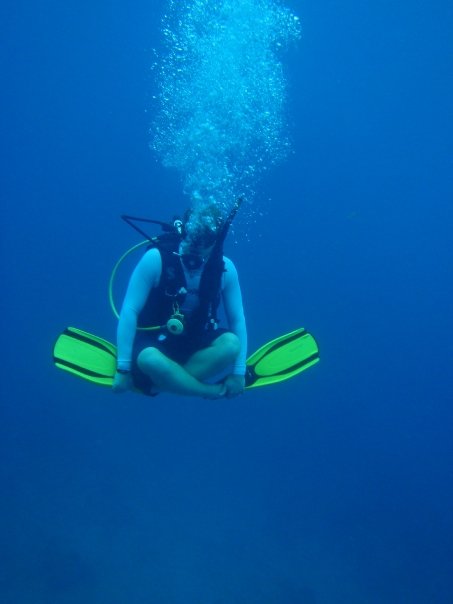 There can be a lot of pressure put on divemasters when they are at work. Not only are they responsible for ensuring that all of the customers have a great time onboard the boat as well as the dive. They are responsible for making sure all of the divers are safe, accounted for, and diving within their limits. With all of these things to think about some times a divemaster can overlook a very important thing. Themselves.
There can be a lot of pressure put on divemasters when they are at work. Not only are they responsible for ensuring that all of the customers have a great time onboard the boat as well as the dive. They are responsible for making sure all of the divers are safe, accounted for, and diving within their limits. With all of these things to think about some times a divemaster can overlook a very important thing. Themselves.
This article is inspired by an event that happened at a dive shop in Costa Rica that I got certified as a divemaster with and am currently working as a webmaster for. It wasn’t actually a divemaster, it was a divemaster intern, but it got me thinking about the pressure that is on a divemaster to be able to dive day in and day out.
In this case, a divemaster intern was downplaying a case of ear barotrauma which can happen to anyone on any dive. Whether he had a slight cold and dove with it or whether he just didn’t equalize correctly I’m not sure. Either way, he had mentioned to a friend that his ears were bothering him before he set out diving for the day. Being a 20 something guy I think he probably had a little case of the “I’m invincible” syndrome that many of us have and decided a little ear ache wasn’t going to slow him down.
The diving location in Costa Rica which he was diving was called the Bat Islands. It is notorious for its bull sharks on the dive site “The Big Scare” which is a fairly deep dive (75-100 feet). After completing a dive here his ears again were hurting and he decided to continue his diving on the next scheduled dive.
On this dive, “The Black Widow” he completed a dive that his computer showed was well within his decompression limits and surfaced normally without a major incident. Shortly after surfacing the divemaster intern began feeling sick and experiencing symptoms similar to that of decompression sickness.
The boat returned to shore quickly and he was immediately taken to hospital where they recommended putting him into the chamber incase it was a case of Audiovestibular Decompression Sickness. $1800 USD later he was on his way to see another doctor who confirmed that he had actually broken his inner ear drum also called an inner ear barotrauma. This would result in several weeks of antibiotics to fend of infections and absolutely no diving for the foreseeable future. This all because a diver didn’t want to tap out on a dive.
This type of situation gets even more complicated had the diver actually been a divemaster who in many cases is the only one on the vessel who can lead the dive and is paid to do it. If a divemaster pulls the plug on a dive a lot of paying customers will likely do the same and the dive shop is out a bunch of money, customers aren’t happy, and a whole host of other problems. Obviously a sore ear is something that is quite hard to visually confirm without a trip to a doctor so shop managers or owners are often forced to take your word for it.
So my question for all of you divemasters out there is what would you do? I have honestly never experienced any real problems with my ears while diving. While I would like to think that I would be smart enough to pull the plug on a dive I do understand that there is a lot of pressure on you to go through with it if you are the only divemaster onboard.
The truth is, taking a bit of heat from your boss will be short lived compared to the problems that can be associated from popping an ear drum and the recovery that follows. Many divers report that after an injury such as this, their ears never return to the same as they were prior to the injury. So before you go and put your ears and possibly your career at risk, let your boss know as soon as possible if you think there could be a problem with your ears. And last and not least, if a problem arises while on an excursion, don’t push your luck. An ear problem isn’t something that you can push through with toughness. It doesn’t matter if you are a 100 pound bean pole or a 250 pound mixed martial arts fighter, an ear drum will pop. Take care of your ears and your career.







